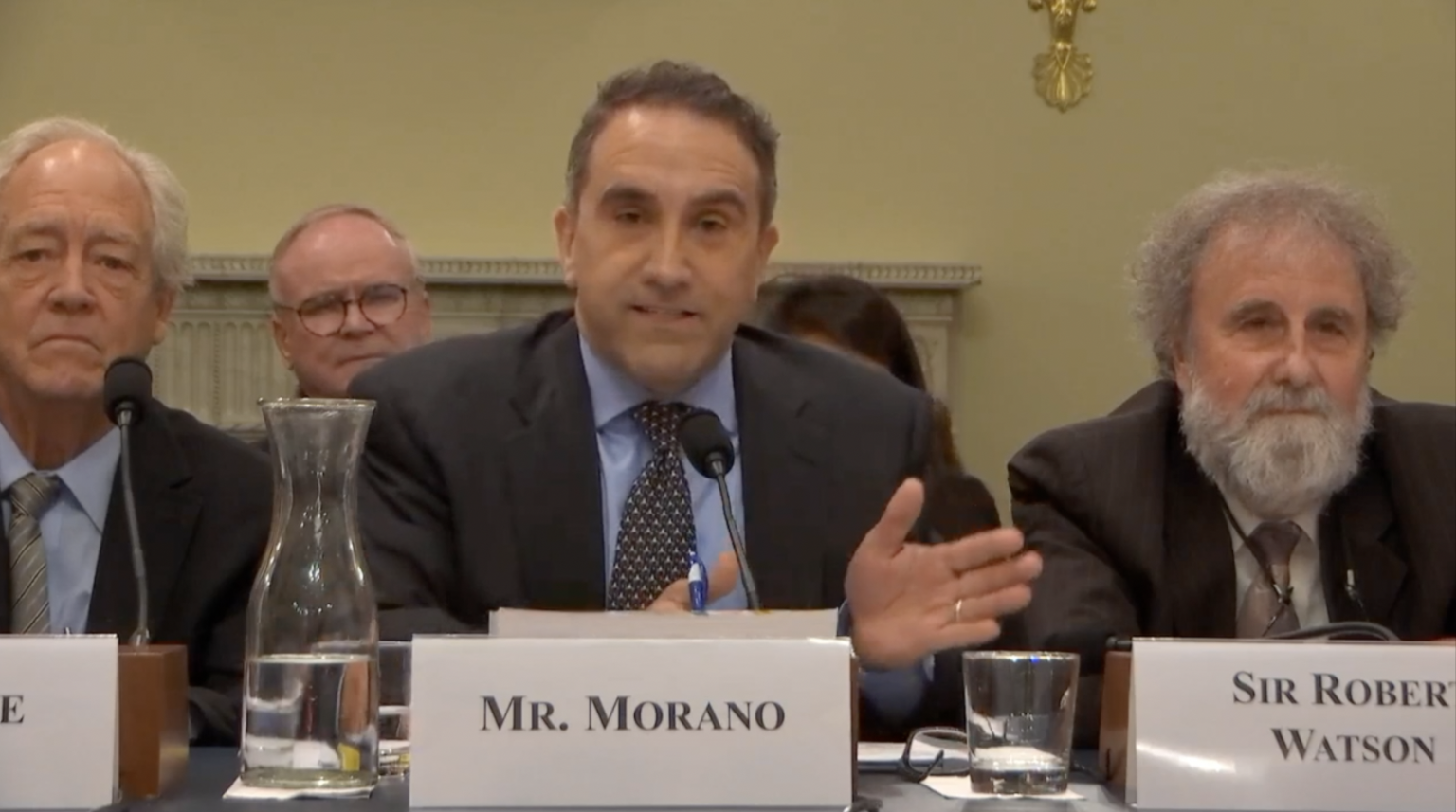In this week’s Congressional hearing on the recent (and dire) UN Global Assessment of Biodiversity, conservation scientist Dr. Jacob Malcom did not mince words as he explained the report’s startling findings that one million species are at risk of extinction.
“We are, as you have heard, losing species faster than ever in human history, tens to hundreds of times faster than the background rate of extinction,” the Defenders of Wildlife scientist told the Congressional House Water, Oceans, and Wildlife Subcommittee. “We are in the middle of the sixth mass extinction, where the last time this happened it was because an asteroid hit the planet. Today we are that asteroid.”
Such a massive loss of plants, animals, and other species would also, quite naturally, affect human life on earth. But just as they have with hearings on the climate crisis, Congressional Republicans and their witnesses used this opportunity to attack the well-documented scientific evidence of a far-reaching global threat to life. And they even used some of the same climate science deniers and tired arguments to do it.
The comprehensive report they attacked gathers even more evidence that human activities are having a significant effect on global biodiversity, just as the scientific consensus shows humans are driving rapid changes in the climate.
“The evidence is crystal clear: Nature is in trouble. Therefore we are in trouble,” Sandra Díaz, one of the co-chairs of the UN Global Assessment Report on Biodiversity and Ecosystem Services, told National Geographic.
Business as Usual With Republican Science Denial
Marc Morano isn’t a scientist but does make his money attacking scientists. From 2006 to 2009, Morano was the communications director for Senator James Inhofe (R-Okla.), who will be remembered for his stunt of throwing a snowball in Congress as he tried to discredit climate science.
Morano moved on from politics to working for organizations funded by oil companies, and he currently runs the website ClimateDepot.com, a project funded by the climate science-denying Committee for a Constructive Tomorrow (CFACT), a conservative think tank which has received funding from ExxonMobil, Chevron, and the Koch brothers.
This week, Morano wasted no time in attacking some of the actual scientists on the hearing’s panel, specifically Sir Robert T. Watson, who heads the UN agency that produced the biodiversity report. These attacks on fellow witnesses resulted in hearing Chairman Jared Huffman (D-CA) twice reprimanding Morano.
Rep. Huffman had to ask that Morano “show respect for your fellow panelists.”
However, oil industry-funded attacks on climate science, and even Robert Watson, are nothing new. In 2001 a memo to the Bush administration from Exxon lobbyist Randy Randol specifically requests that Watson be removed as head of the Intergovernmental Panel on Climate Change (IPCC), a position he held at the time.
And Morano, a notorious climate science denier, is continuing this long tradition of groups funded by Exxon attacking Watson. Exxon has donated heavily to CFACT and was also involved in the infamous “Victory Will Be Achieved” memo. This memo, assembled by Randol and the American Petroleum Institute, declared in 1998 that “Victory will be achieved when average citizens ‘understand’ (recognize) uncertainties in climate science.”
The other climate science denier on the witness panel this week was Dr. Patrick Moore, current head of the CO2 Coalition, an organization that grew out of a now-defunct group heavily funded by Exxon.
What did the leader of an organization called “the CO2 Coalition” have to say about carbon dioxide?
“There is no hard evidence that CO2 has anything to do with the change in temperature of the earth’s climate,” Moore told the committee.
In fact, Exxon’s own research accurately predicted the rise in CO2 and temperature which the world has been experiencing.
Exxon predicted today’s warming three decades ago https://t.co/8KijOnK7Ce pic.twitter.com/i9RZFXGPWm
— Russell Turpin (@turpin_russell) May 21, 2019
However, Moore not only made the claim that CO2 doesn’t contribute to atmospheric warming — a concept first demonstrated by Eunice Foote in 1856 — but also said that because humans have been increasing the levels of CO2 in the atmosphere, they were actually the “salvation of life on earth.” And while plants do use carbon dioxide, more CO2 is not necessarily good for plants.
Not everyone in the hearing seemed interested in the blatantly false statements coming from these industry-backed science deniers. Chairman Huffman noted that the efforts came from the “shadowy corners of these junior varsity think tanks.”
Wow @JaredHuffman says Republican witnesses are “trolling” climate scientists and are from the “shadowy corners of these junior varsity think tanks.”
— Emily Holden (@emilyhholden) May 22, 2019
Solutions Amid the Attacks and Noise
Due to the format of Congressional hearings and the general GOP policy of climate science denial, these hearings typically offer very little in the way of solutions or actual debate. However, two of the panelists did speak about the threats to biodiversity and comment on solutions.
Malcom, the scientist from Defenders of Wildlife, called out the success of the U.S. Endangered Species Act. “We have forty some odd years showing that the Endangered Species Act has worked incredibly well and as we all know the American economy has continued to grow throughout that entire time,” he said.
Notably, the Trump administration currently is attempting to weaken the scope and effectiveness of the Endangered Species Act.
Perhaps the most concrete recommendation of the day came from Watson, who recommended that governments stop subsidizing industries that are causing harm to the climate and global species.
“One should get rid of many of these environmentally harmful subsidies in agriculture, energy, and transportation,” Watson told the committee.
With suggestions like these, Watson was an obvious target for industry-funded science deniers like Morano and Moore.
Main image: Screen shot of witnesses Patrick Moore, Marc Morano, and Robert Watson in the May 22, 2019 hearing of the Congressional House Water, Oceans, and Wildlife Subcommittee on the recent IPBES Global Assessment of Biodiversity and Ecosystem Services report.
Subscribe to our newsletter
Stay up to date with DeSmog news and alerts






